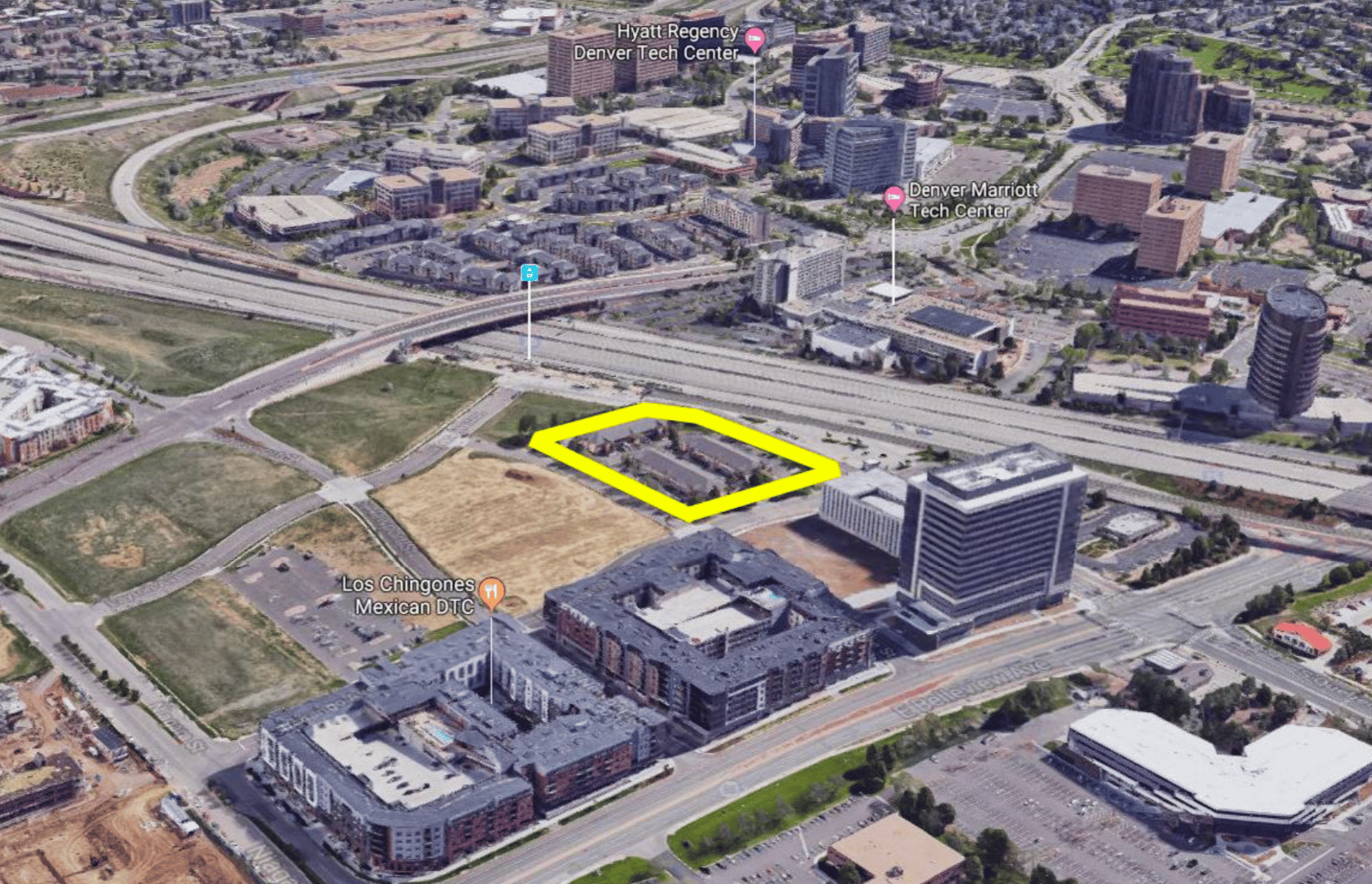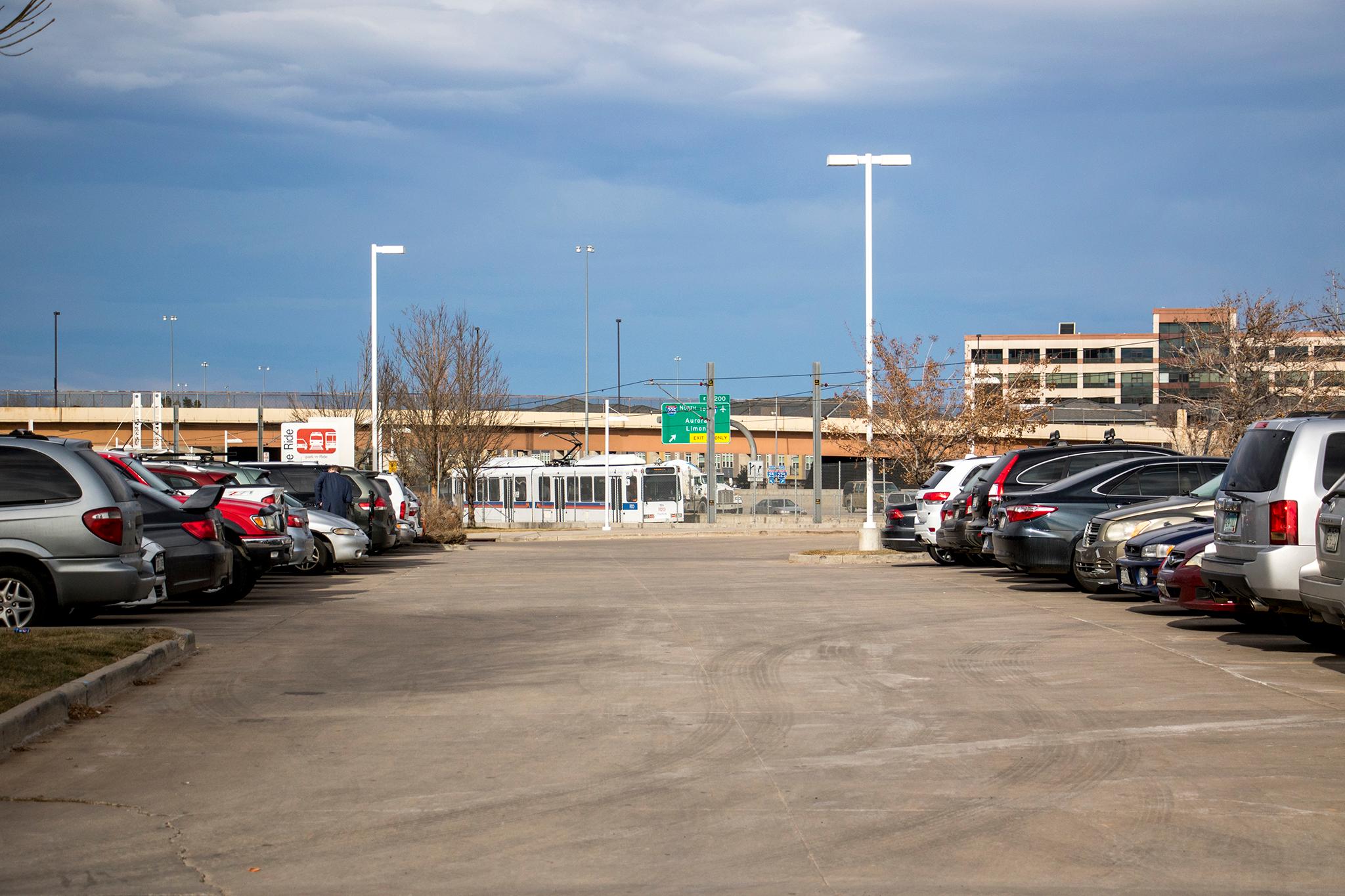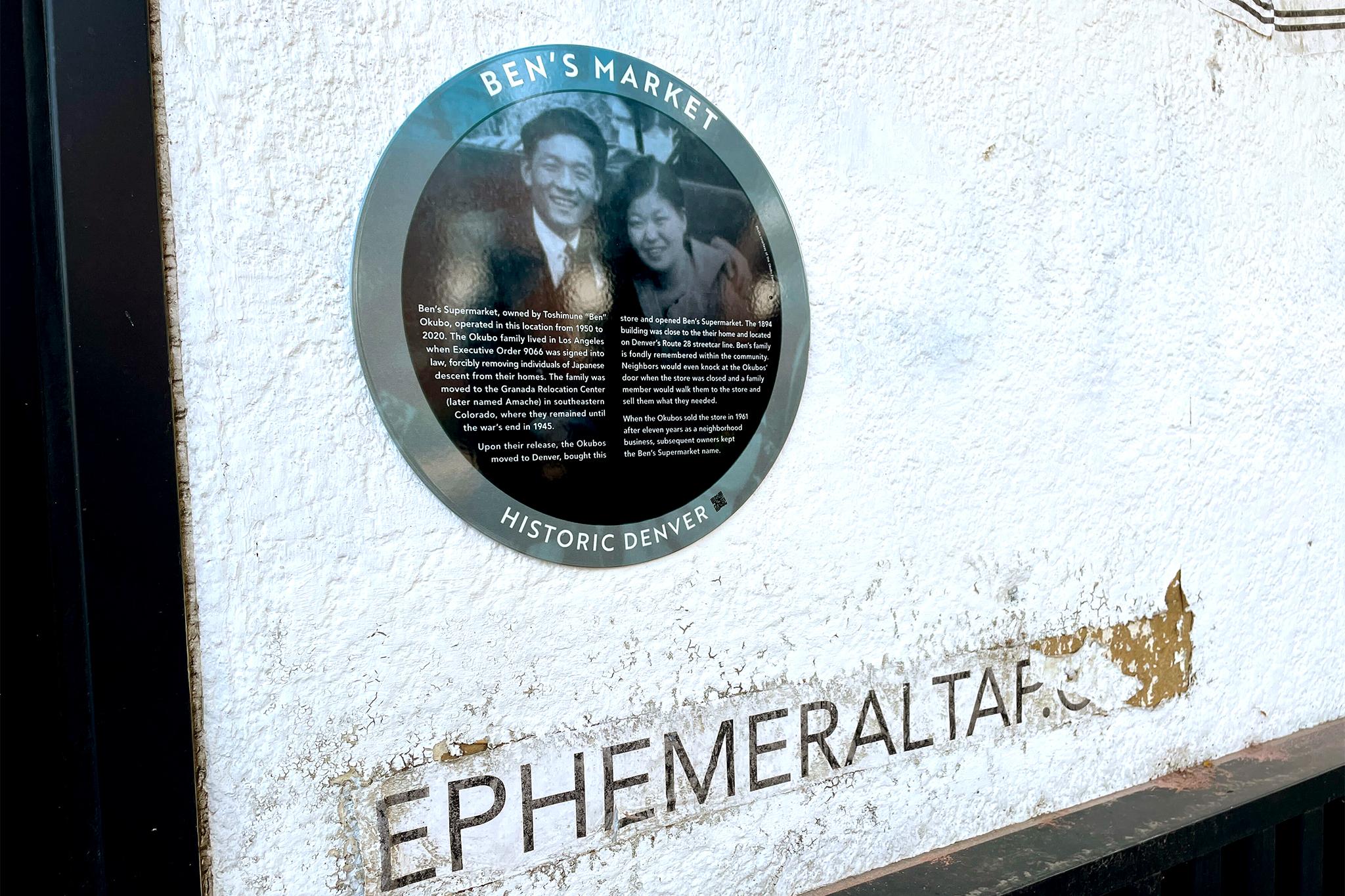The Denver City Council on Monday cleared the way for a tower of up to 20 stories high slated to headquarter one of America's richest corporations and a top producer of gold worldwide, as well as a four-star hotel with shops on the ground floor.
Developer Stonebridge Companies aims to build a "four-star" hotel on the 3-acre site, Tommy Nigro, the company's vice president of real estate said during a public hearing.
And Newmont Mining, a Fortune 500 Greenwood Village-based company that extracted more gold in 2017 than almost every other company in the world, will move to the Belleview light rail station near the Denver Tech Center in one of the southernmost parts of Denver if all goes according to plan, company spokesman Omar Jabara told Denverite.
Elected officials removed a major barrier to that plan by approving the developer's request to allow heights of 250 feet on a parcel previously zoned for just 50.
New development will supplant an Extended Stay America motel -- described by supporters as an "eyesore" and a magnet for criminals -- built a decade before RTD's adjacent light rail lines.

Several city plans call for Denver to "concentrate the most intense development" around transit stations like the Belleview station, city planner Jeff Hirt said, adding that the sprawling train station area has not reached its potential as a walkable, compact activity hub.
"This will be an incredible development in our city and in my district," said City Councilwoman Kendra Black, who represents the area.
Opponents worry that too many toilets will be flushed and too many roads will be driven.
A group of nearby businesses that tax themselves to pay for infrastructure -- water lines, roads, sidewalks, traffic signals -- around the station fought against the new building rules.
The Belleview Metropolitan Districts have paid $33 million to outfit the area, according to Robert Warren, whose family owned the land since the 1880s. New development should not get to benefit from that infrastructure without paying into it, Warren and others argued.
"The idea is that the cost of new development should be borne by those who will benefit, and consequently the cost of new development should not be borne by those who will not benefit," said Dianne Miller, the attorney for the districts.
The would-be developers are not part of those districts. City council members, planning department staffers and city attorneys said that's just how it goes in every corner of the city -- initial developers bear the brunt of initial infrastructure. There's just no legal recourse, staffers said.
"I agree with you and if there was a way for you to make them pay for it that would be great," Councilwoman Black said. "There is nothing legally that the city can do to compel you to do that."
Opponents also worried new development would not net enough "open space" around the transit hub. Nothing in the new zoning requires developers to build any. Nigro, representing Stonebridge, told council members that permeable land would cover more than 10 percent of the property, but nothing binds him to that statement.
City Council voted to approve the new rules 12 to 1. Councilman Rafael Espinoza voting against the measure.













